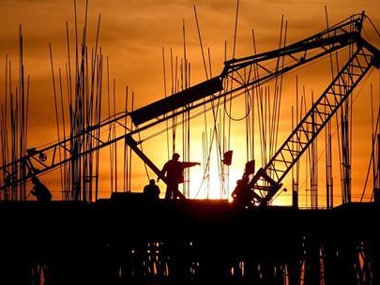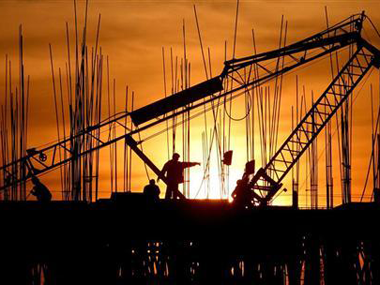(Editor’s note: A month after the launch of the biggest indirect tax reform undertaken in the country, Firstpost takes a look at how businesses are faring under the new regime. There have been confusion and concerns, much of which have not yet been addressed. This is the third of a four-part series taking stock of the GST’s impact.) The Goods and Service Tax (GST) is touted as the biggest tax reforms in India since Independence. It is rightly so. The government claims that GST will result in economic growth and those claims have been rubbished by some economists. The numbers for estimated GDP Growth ranges from 1 percent to 2 percent. This GDP growth is expected by bringing informal sector within the tax net and accounting the same in national income. This also raises questions on how GST would help in encouraging more investments in the country and encourage entrepreneurship. In pre–GST era, the Central and State Governments encouraged entrepreneurship and industrial investments with various specially structured schemes. This included exemptions to support small scale industries and tax deferment schemes for large investments. To develop infrastructure and create employment in backward regions, governments gave special excise exemption in backward areas. Here it is pertinent to note that government is of the view that any tax exemption, etc availed by any enterprise is a tax leakage. Hence, the government has gone an extra mile in plugging these leakages by reducing threshold limit for unregistered dealers to Rs 20 lakhs. This means innumerable Small Scale Industries (SSIs) who were out of the tax net because their annual turnover was less than Rs 1.5 crores have now come within tax net. Also, all backward area benefits have been withdrawn. To further ensure that tax is collected from SSIs and other unregistered dealers, the government has come out with Reverse Charge Mechanism (RCM). In RCM, a buyer of goods and services has to pay GST on whatever goods they purchase and services they avail from unregistered dealers. The buyer gets input tax credit on the same and so he is not in a loss. The only endeavour of the government is to collect tax on each and every paisa worth of sales done by anybody and everybody, even if the seller is a small unit with a turnover of less than Rs 20 lakhs. [caption id=“attachment_2111813” align=“alignleft” width=“380”]  Reuters[/caption] While this is a positive step to plug leakages, the government has failed to delve upon three very important issues. The first pertains to how can the government encourage and support small scale industries to startup and grow. Second, how can government attract large industries in the state. Any large industry coming in the state helps many small industries that thrive on large industries. Third, how can the state develop its backward areas. Allowing tax breaks has been one of the easiest ways to address all these issues. Now with the GST regime kicking in and all exemptions being scrapped, states have lost this option. This would result in state governments having to walk an extra mile to create the right environment for industries to thrive. This includes providing infrastructure, quality and trained labour, safe environment for industry to operate, less labour problems and unrest, to name a few. Industries will compare and opt for investing in a state based on these and many other parameters. The question that arises is whether states will provide the same? This requires a proactive and performance-driven polity and bureaucracy. Beyond an efficient government, states will need to invest in infrastructure, skills development, and law and order. Infrastructure and skills development will cost a lot. Here, if we think like a devil’s advocate, one would question why a state needs to take all these pains. Many readers would be wondering why this question of investing in infrastructure. The logical reasoning would be – states will invest in infrastructure, attract industries, collect taxes, and recover their investments in infrastructure. However, does this hold true in a GST regime? In erstwhile Excise plus VAT regime, producer states earned a share of excise duties paid by industries in the state. In other words, excise was production-oriented. Now GST is consumer-oriented. This means states will earn their share of revenues based on how much it consumes, and not based on how much it produces. Thus, if a company sets up a manufacturing facility in a state and a large part of its production is exported to other states, then the state where this industry is set up will not be benefited. Rather, states where the products are sold will earn a share of tax. So the question arises, why the state will undertake all initiatives to attract industry in the state and invest in infrastructure if it is not an economic beneficiary of the said investments. Haven’t we seen many states that totally ignored industrial development and the local population depending on getting employment in other states? Some of those states would earn higher tax revenue only due to its population resulting in more consumption. Does this augur well for states to encourage them to invest in attracting industries? How will states address this aspect and come out with schemes attractive for industry to encourage industry to invest in that particular state? How will states recover those investments and economically benefit from industrial investments? This is something for governments to deliberate and evolve a solution. Part-IV to be published tomorrow : How states need to improve infrastructure. Read Part 1 here and Part 2 here (The writer is a Chartered Accountant by qualification and a finance and media professional. You can follow him on Twitter on @sumeetnmehta)
State governments having to walk an extra mile to create the right environment for industries to thrive
Advertisement
End of Article


)




